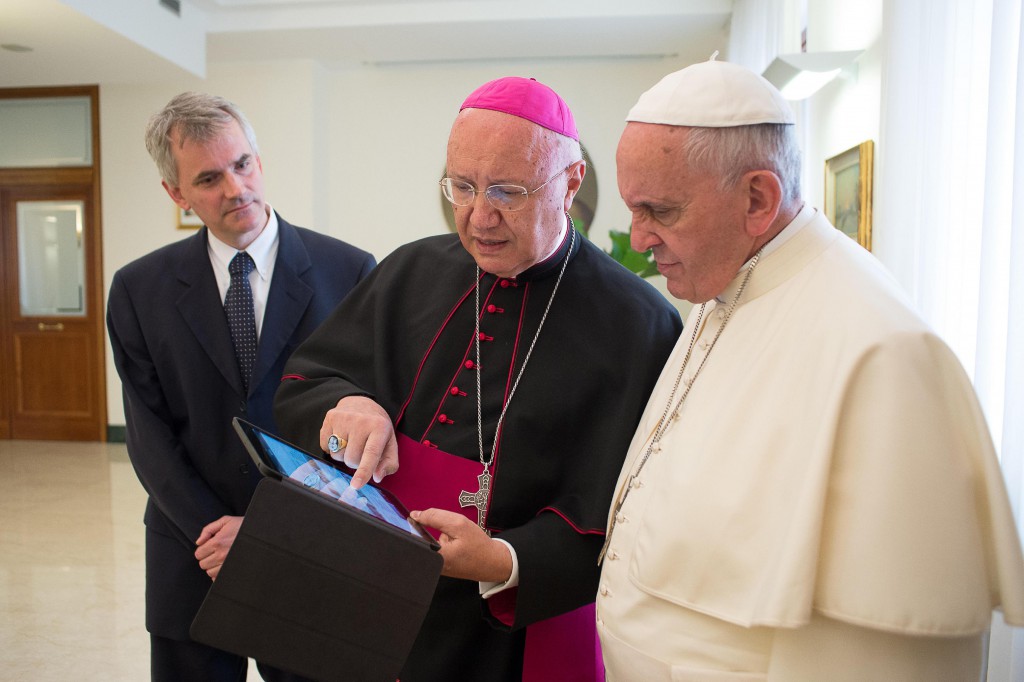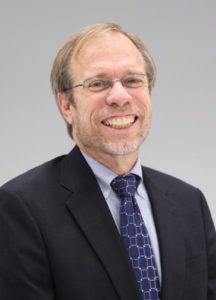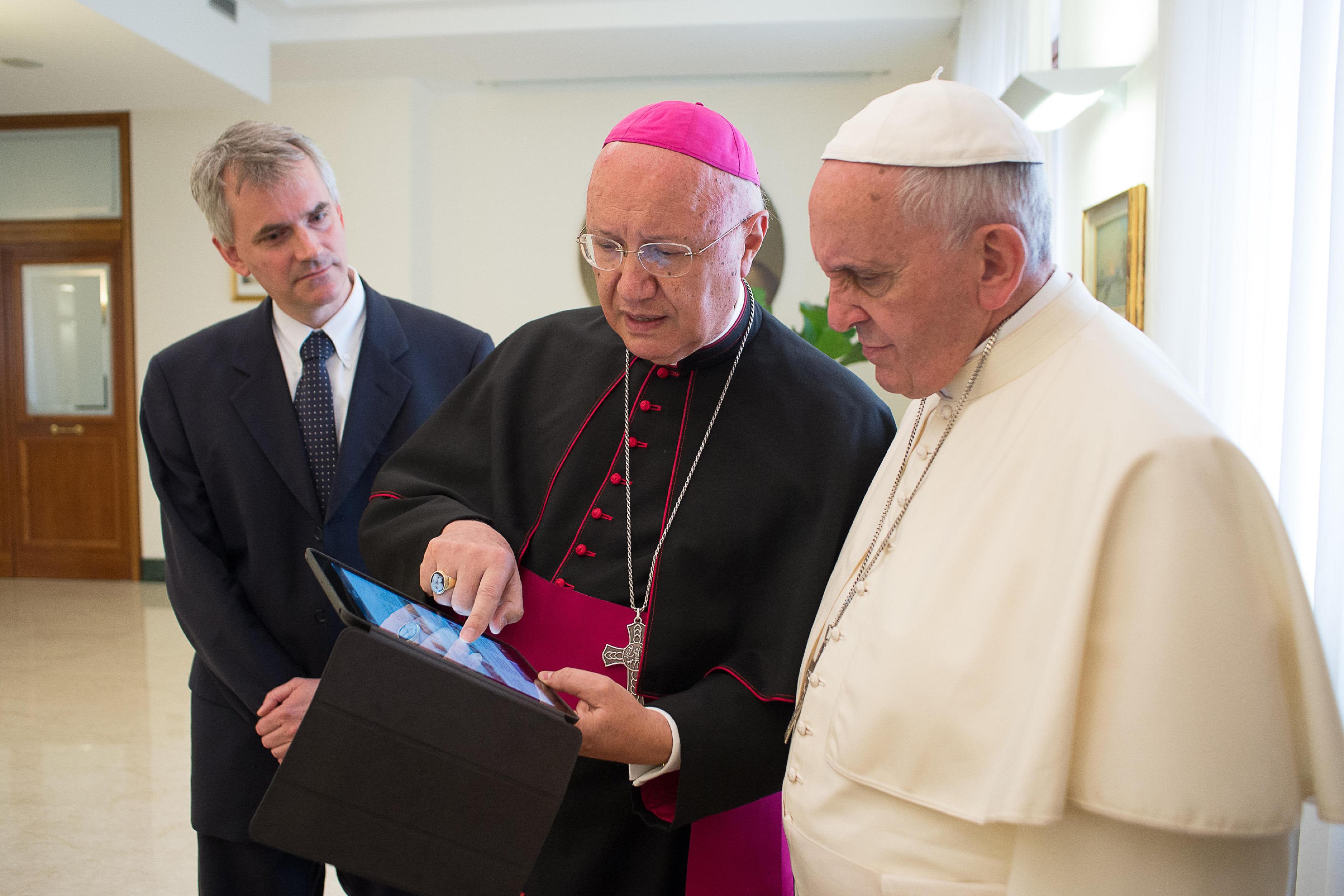
VATICAN CITY (CNS) — Seven months after hiring a consulting firm to study the Vatican’s communications structures, the Vatican has set up an 11-member committee — which includes Our Sunday Visitor’s Greg Erlandson — to suggest ways to increase collaboration and cut costs.
Australian Cardinal George Pell, prefect of the Vatican Secretariat for the Economy and a member of Pope Francis’ Council of Cardinals, announced the formation of the committee at a news conference July 9.

“The objectives are to adapt the Holy See media to changing media consumption trends, enhance coordination and achieve progressively and sensitively substantial financial savings,” he said.
The cardinal told reporters there currently is little or no relation between the Vatican’s individual media expenditures and the number of people reached around the world. For example, he said, at a time when fewer and fewer people around the world listen to the radio, the Vatican’s largest media employer is Vatican Radio, which produces programs in 45 languages.
At the same time, he said, the success of Pope Francis’ Twitter account and the PopeApp developed for mobile devices by the Pontifical Council for Social Communications — offering a combination of Vatican Radio and other Vatican media-produced news, photos and video — show a need to strengthen the Vatican’s digital outreach.
Still, Cardinal Pell said, “the priority is not economic,” but using resources more efficiently to reach the greatest number of people possible. While cutting costs is one goal, “we do not want to diminish our outreach.”
The Vatican has nearly a dozen separate communication outlets and offices, many of which operate independently of one another. They include the Pontifical Council for Social Communications; the Vatican newspaper, L’Osservatore Romano; Vatican Radio; the Vatican television production studio, CTV; the Vatican Information Service; the Vatican press office; the Fides missionary news agency; the main Vatican website; the news.va news aggregator; the Vatican publishing house LEV; and the Vatican printing press.
Lord Chris Patten, former chairman of the BBC Trust and former chancellor of the University of Oxford, will serve as president of the commission. The 70-year-old British public servant is a Catholic and was coordinator of Pope Benedict XVI’s trip to the United Kingdom in 2010.
Irish Msgr. Paul Tighe, secretary of the Pontifical Council for Social Communications, will serve as secretary of the commission, which has been asked to come up with recommendations in the next 12 months.
The commission members have been asked to review the report submitted to the Vatican by the global management-consulting firm McKinsey & Co. The firm was hired in December to review the Vatican communications structures and recommend ways to streamline and modernize them.
The other members of the commission are:
- Erlandson, who is president and publisher of Our Sunday Visitor Publishing. He serves as a consultant to the Pontifical Council for Social Communications and, from 1986 to 1989, he was a correspondent in the Rome bureau of Catholic News Service.
- Daniela Frank, executive director of the Catholic Media Council in Germany and consultant to the council.
- French Dominican Father Eric Salobir, media promoter for the Dominicans worldwide.
- Leticia Soberon, a Mexican psychologist who is one of the founders and the chief content officer of dontknow.net, a website devoted to exploring ethical, moral and religious questions.
- George Yeo, former finance minister of Singapore and a member of the Vatican’s new Council for the Economy.
- Giacomo Ghisani, director of international relations and legal affairs at Vatican Radio.
- Msgr. Carlo Maria Polvani, head of the information and documentation office in the Vatican Secretariat of State’s section for general affairs and the Vatican’s representative to the government advisory committee of the Internet Corporation for Assigned Names and Numbers.
- Msgr. Lucio Adrian Ruiz, who was born in Argentina and serves as head of the Vatican Internet Service and its telecommunications office.
- Giovanni Maria Vian, editor in chief of the Vatican newspaper, L’Osservatore Romano.
— By Cindy Wooden, Catholic News Service.







